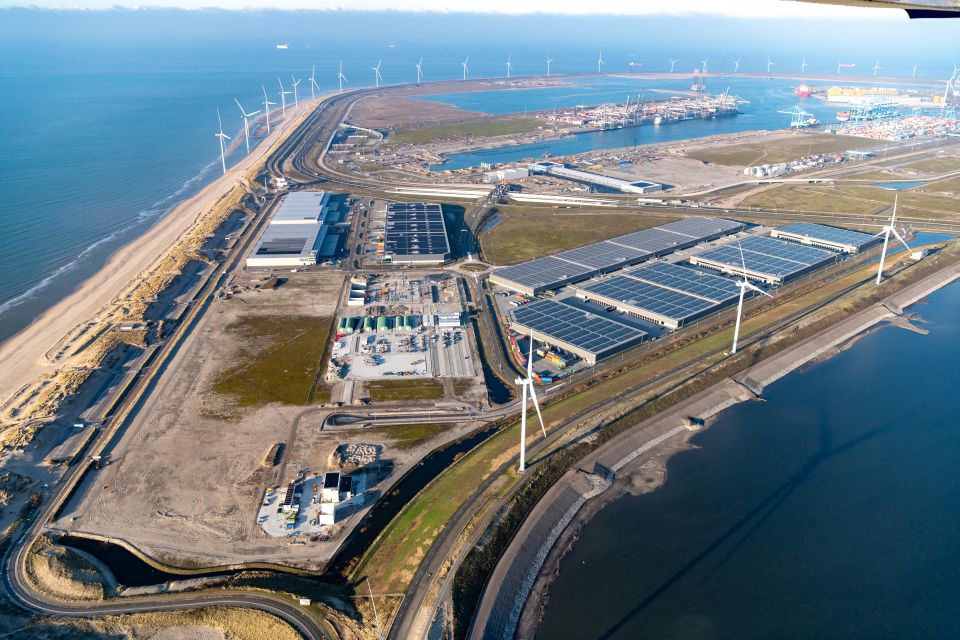Many people probably never visit them, but ports really are of great strategic importance for a nation’s prosperity, well-being and security. Entire wars have been and are being fought over them (Crimea, South China Sea, Red Sea, Arabian Gulf) to control free access to the sea.
Most of the stuff we need and use has come through a port, and so who controls a port also determines what your options are, what you eat, and how you live. As editors, we are therefore very happy to have the cooperation of Dr Bart Kuipers, senior researcher in Port Economics and his colleagues at Erasmus University Rotterdam, in compiling the port special in this March issue.
The last time he coordinated a ports special for us at our invitation was in June 2019. Climate change was already an issue then, and there was also the understanding that ports had a key role to play in the transition to a fossil-free, no CO2-emitting, climate-friendly way of creating our prosperity and well-being. But there was also optimism that China’s Belt and Road Initiative, which then had the image of the New Silk Road, would move the world forward.
Also read: SWZ|Maritime’s February 2024 issue: Dredging, a strategic industry
Crucial that energy transition of our ports is a success
It has since become widely accepted that a fossil-free economy is not only necessary to save the climate, but also vital to maintain our independence from rogue states. The Vietnamese, Filipinos, Indonesians, Indians, many Africans and now a good number of Europeans experience that Chinese companies and investments do not serve us, but only the Chinese interest. It is therefore crucial that the energy and resource transition of our ports is a success. Kuipers and co. provide an update on these important developments in this issue.
Also included is a first monthly contribution of two articles from CEDA, the Central Dredging Association. CEDA is the international trade association for the dredging industry. It is a leading platform for knowledge exchange and an authoritative reference point for impartial technical information. CEDA’s members are companies, professionals and stakeholders involved in a variety of activities related to dredging, marine construction and dredged material management. And because CEDA is an important part of the maritime sector, SWZ|Maritime is pleased to publish two technical articles on dredging activities every month.
This is editor-in-chief Antoon Oosting’s editorial accompanying the March 2024 issue.
Also read: SWZ|Maritime’s January 2024 issue: An education and labour market special
SWZ Archive
Our digital archive is once again available to subscribers and they can read the digitial version of our March issue there. Subscribers can register here to gain access. Not yet a subscriber? Visit our subscription page.
Also read: SWZ|Maritime’s December 2023 issue: Finland leads the way in shipbuilding
The articles in SWZ|Maritime’s March issue
In addition to the regular sections such as Dutch news, Markets, Global news, book reviews, news from the KNVTS and Mars Report, the articles in the March issue are:
- Waterstof: stand van zaken in Nederlandse zeehavens
- Anders denken over de waarde van zeehavens
- Maritieme maakindustrie in transitie
- Ammoniak als grondstof
- Cyberweerbaarheid in maritieme sector Rotterdam
- Zeevarenden: uit het oog, uit het hart?
- ‘Houd Europese havens uit Chinese handen’
- Nederlandse havens worstelen met transities
- Cutting edge technology preserves port heritage
- Engineering resilient and sustainable coastlines
- Onboard IoT platform
Picture: Although the transition to a sustainable port is also gaining momentum in Rotterdam, developments are still lagging behind. On the other hand, once the investment decision is made, projects can get off the ground quickly (photo Martens Multimedia/Port of Rotterdam, cover picture of SWZ|Maritime’s March 2024 issue).
Also read: SWZ|Maritime’s November 2023 issue: This issue is all about engineering








